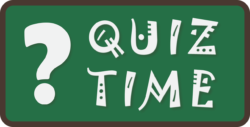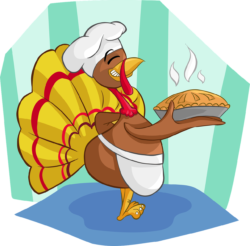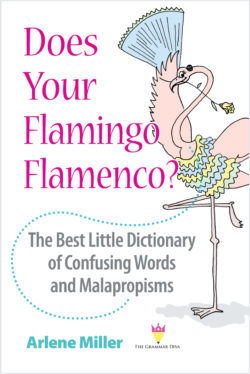Arlene Miller's Blog, page 42
January 5, 2018
A Little Quiz to Begin 2018
 Happy New Year, Grammar Lovers!
Happy New Year, Grammar Lovers!We all like taking quizzes, right? Especially when there is no one there to correct them for us. (sentence fragment)
Here is a grammar quiz to start the new year. After you finish, scroll way down to see the answers. For more detailed explanations of the answers, stay tuned for next week’s post. Here we go . . .
1. Is this book title capitalized correctly? And We are Happy Again
2. My mom gave snacks to my friend and (me, myself, I).
3. Is something wrong with this sentence? If so, what? I heard about the meeting at the zoo.
4. Is something wrong with this sentence? If so, what? Topics covered during the seminar will include ordering new equipment, training employees on the new software, who will be the system administrator, and assigning tasks for maintaining the new lab.
5. Is this sentence okay? And we will have all the new furniture in time for our open house!
6. Is this sentence OK? The teacher told us we couldn’t leave our desks until the bell had rang.
7. (Who, whom) did you invite to the movies?
8. This is the closing of a letter: Sincerely (Yours, yours)
9. Is this sentence okay? I don’t know whom I am going with.
10. Can you identify the grammar issue in this sentence? He told me to carefully tear the coupons.
11. Is this sentence okay? Why or why not? Joe and his friend tried to climb Mt. Whitney, but he was too out of shape.
12. What is the problem with this sentence? The meeting is at 8 a.m. in the morning.
13. How would you fix this sentence? The coat, that has a blue hood, is mine.
14. Between you and (I, me), I think he gave the tickets to (he, him) and Joe.
15. Neither Carrie nor Katrina (are, is) playing in the concert.
16. I feel really (bad, badly) about missing the meeting.
17. Everyone who is going to the concert needs to bring (his or her, their) ticket.
18. My cat is (laying, lying) in the sun.
19. My sister, along with her friends, (are, is) coming with us.
20. If I (was, were) taller, I could reach that bookshelf.
21. Is this sentence correct? The class consists of nine boys and 16 girls.
22, Is this sentence correct? Drive slow through the fog.
23. She likes chocolate better than (I, me).
24. Is this sentence correct? Sitting on a bed of rice, the chicken looked delicious.
25. It is (they, them) knocking at the door.
Scroll down for the answers.
Keep Scrolling
Keep scrolling
Keep scrolling
One more time.
Answers:
No. Capitalize Are.
me
Confusing. Was the meeting at the zoo, or did you hear about it while you were at the zoo?
Not parallel. Add the word deciding before who, and it will be fixed!
Yes. It is okay to start a sentence with a conjunction in most cases. I don’t like it in formal writing, though.
had rung
whom
yours
Yes. It is okay to end a sentence with a preposition in most cases. (Where are you at? is still wrong.)
Split infinitive
No. Confusing. To whom does he refer?
Redundancy. if you write a.m ., you don’t need to write morning .
Take out both commas.
me, him
is
bad
either one is now fine.
lying
is
were
No. Write either 9 boys and 16 girls or nine boys and sixteen girls.
Slowly is better than slow, but slow is acceptable.
I
yes
They is technically correct.
December 29, 2017
Where Did New Year’s Resolutions Come From? And Where Did the Holidays Go?
 The Best of The Grammar Diva
The Best of The Grammar DivaOriginally published DECEMBER 29, 2016
In 2017 I promise to
Lose weight
Go to the gym three times a week
Be more patient with my children (my spouse, my friends, myself, my whatever . . . )
Eat healthier
Find love
Find a new job
Sound familiar?
Where Did New Year’s Resolutions Come From?
Although New Year’s resolutions are most common in the Western Hemisphere, they are found all over the word. We all know what they are: a promise to ourselves to do some type of self-improvement.
The ancient Babylonians were apparently the first people to make New Year’s resolutions, about 4,000 years ago. However, for them the year began not in January, but in mid-March when the crops were planted. During a 12-day religious festival known as Akitu, the Babylonians crowned a new king or reaffirmed their loyalty to the reigning king. They made promises to the gods to pay their debts and return any farm equipment they had borrowed.
The Romans began each year by making promises to the god Janus, for whom the month of January is named. The early Roman calendar consisted of 10 months and 304 days, with each new year beginning at the vernal equinox. It was created by Romulus, the founder of Rome, in the eighth century B.C. Over the centuries, the calendar fell out of sync with the sun, and in 46 B.C. the emperor Julius Caesar consulted with the most prominent astronomers and mathematicians of his time. He introduced the Julian calendar, which closely resembles the calendar that most countries around the world use today.
Caesar instituted January 1 as the first day of the year, partly to honor Janus, the Roman god of beginnings, whose two faces allowed him to look both back into the past and forward into the future. Romans celebrated the new year by offering sacrifices to Janus, exchanging gifts with one another, decorating their homes with laurel branches, and attending raucous parties.
In the Medieval era, the knights took the “peacock vow” at the end of the Christmas season each year to re-affirm their commitment to chivalry.
This tradition has other religious parallels. In Judaism. on Yom Kippur (the Day of Atonement), the culmination of the Jewish New Year, Jews reflect upon their wrongdoings over the past year and seek forgiveness. And the practice of New Year’s resolutions came, in part, from the Lenten sacrifices of Christians. The concept, regardless of creed, is the annual reflection upon self-improvement.
Despite the tradition’s religious roots, New Year’s resolutions today are a secular practice. Instead of making promises to the gods, most people make resolutions to themselves and focus purely on self-improvement.
So Who Makes Resolutions? Who Keeps Them?
At the end of the Great Depression, about 25% of American adults made New Year’s resolutions. At the beginning of the 21st century, about 40% did. And those who make common resolutions such as weight loss, increased exercising, or quitting smoking are at least ten times more likely to succeed compared with those who do not make resolutions.
Here are the most common reasons for people failing at their New Years’ Resolutions:
Unrealistic goals (35%)
Not keeping track of progress (33% )
Forgetting all about it (23%)
Making too many resolutions (10%)
A 2007 study by Richard Wiseman from the University of Bristol involving 3,000 people showed that 88% of those who set New Year resolutions fail despite the fact that over half of the study’s participants were confident of success at the beginning.
Men achieved their goals more often when they engaged in specific goal setting.
Women succeeded more when they made their goals public and got support from their friends.
Things to Do on New Year’s Eve
In Spain and several other Spanish-speaking countries, people bolt down a dozen grapes right before midnight, symbolizing their hopes for the months ahead. In many parts of the world, traditional New Year’s dishes feature legumes, which are thought to resemble coins and herald future financial success. Because pigs represent progress and prosperity in some cultures, pork appears on the New Year’s Eve table in Cuba, Austria, Hungary, and Portugal. Ring-shaped cakes and pastries, a sign that the year has come full circle, are part of the feast in the Netherlands, Mexico, and Greece. In Sweden and Norway, rice pudding with an almond hidden inside is served on New Year’s Eve: whoever finds the nut can expect 12 months of good fortune.
Other customs that are common worldwide include watching fireworks and singing songs, including “Auld Lang Syne” in many English-speaking countries.
In the United States, the most iconic New Year’s tradition is the dropping of the giant ball in New York City’s Times Square at midnight, an event that began in 1907. The ball has gone from a 700-pound iron-and-wood orb to a brightly patterned sphere 12 feet in diameter, weighing nearly 12,000 pounds. Some towns and cities across America have developed their own versions of the Times Square ritual including public drops of pickles (Dillsburg, Pennsylvania) and possums (Tallapoosa, Georgia)
How Have Resolutions Changed?
Americans’ Resolutions for 1947 – Gallup Poll
1. Improve my disposition, be more understanding, control my temper
2. Improve my character, live a better life
3. Stop smoking, smoke less
4. Save more money
5. Stop drinking, drink less
6. Be more religious, go to church oftener
7. Be more efficient, do a better job
8. Take better care of my health
9. Take greater part in home life
10. Lose (or gain) weight
Americans’ Resolutions for 2014 – University of Scranton
1. Lose weight
2. Getting organized
3. Spend less, save more
4. Enjoy life to the fullest
5. Stay fit and healthy
6. Learn something exciting
7. Quit smoking
8. Help others in their dreams
9. Fall in love
10. Spend more time with family
P.S. Weight loss has obviously become important to us. As a nation, we’re the heaviest we’ve ever been. And along with the extra pounds come physical conditions like diabetes and cardiovascular disease, as well as social stigmas like bullying and weight discrimination. But Abigail Saguy, a sociology and gender studies professor at University of California, Los Angeles, points out that bodies — especially women’s bodies — have always been imbued with some kind of social meaning, and she suspects that people are more interested in enjoying the elevated status of a socially acceptable body than improved health outcomes.
Where Did the Holidays Go?
It all started when we began to see Thanksgiving decorations several months ago. Well, actually perhaps it began around Labor Day when pumpkins started showing up in stores. And now, several months later, it is just about over. Most people are breathing a sigh of relief. A few love the season and hate to see it go.
I would think most of the people who love it and hate to see it go are those with kids — small kids — and intact marriages, and families who get along — for the most part, anyway. The holiday season is a whole lot easier for those people. And add to it a love of decorating, a love of baking, a love of entertaining, and just a love of being busy and spending time with people you love — and you can see why there are those who really love the holidays.
People who are glad the holiday season is over, I would think, fall into two groups:
Those who consider it too much.
Those who have too little.
Those who consider it too much: Even if you love to shop and wrap and bake and entertain and decorate and look at pretty lights, it gets tiring, and many people love it, and love when it is over as well. Maybe there are family issues, or too many people to visit, people who are now alienated from parts of families, people who are far away — or too far away to see at all. Then, there is the money spent, the stress of it all. Ah! January 1!
Those who have too little: I am not talking about having too little money, although that could certainly put a damper on the holidays. I am talking about those with no family, or estranged family. There are more people in those circumstances than I had thought, I somewhat being among them. Perhaps they have no siblings, no living parents, no children, children who are estranged or occupied with spouses’ families, newly divorced or widowed, and the list goes on. It is a very difficult time of year for lots of people. That is where good friends come in. They become our family. But for many, it is a relief when January 1 comes, and we don’t have to worry about the holidays for another 9 or 10 months.
Regardless of the kind of holidays you had this year, I hope 2017 is a happy and successful year for you all!
Happy New Year from The Grammar Diva!
Thank you all for reading and commenting on my blog posts
and for your support during the past year!
Next week I will be back with brand new blog posts. Vacation is over! In the meantime:
I Wrote a Book: Now What? Available on Kindle January 3 and for preorder NOW. Available soon on all other e-readers.
The Best Little Grammar Collection Ever! available on Amazon and all other online retailers by mid-January.

December 20, 2017
Where Does the Word “Yule” Come from, Anyway?
 The Best of The Grammar Diva
The Best of The Grammar DivaOriginally Published December 6, 2013
In the spirit of the holiday season, I thought you might like to know where some of the common holiday words come from. Here are the etymologies (origins) of some common holiday words:
Christmas (noun or adjective) – From the late Old English Cristes maesse, Christ and mass. Christmas was written as one word beginning in the mid 1300s. Christmas cards were first designed in 1843 and became popular by the 1860s.
Hanukkah (noun) – also spelled Chanukah and Hanukah (and other less common ways), it is from the Hebrew meaning to dedicate or consecrate.
Advent (noun) – Means important arrival, first used in 1742 to indicate an extended “season before Christmas” (Old English), from the Latin advent (a coming, approach, arrival).
Carol (noun) – Used from around 1300, carol means “a joyful song”and also to “dance in a ring” from the Old French carole. It is perhaps also related to the Latin choraula, meaning a dance to the flute. Before that, from the Greek Khoraules, the flute player who accompanies the choral dance. Khoraules is from khoros (chorus) and aulein (to play the flute).
Dreidel (noun) – The four-sided top bearing the Hebrew letters nun, gimel, he, and shin, one on each side, is from the Yiddish dreydl. In Middle High German, drey means “to rotate or turn.”
Grinch (noun) – Meaning “spoilsport,” all uses of this word trace to Dr. Seuss’s 1957 book How the Grinch Stole Christmas.
Latke (noun) – The pancakes, traditionally eaten on Chanukah and generally made from potatoes, have their origins from the East Slavic latka, a dialectical from of aladka, which is a kind of pancake. It goes further back to the Old Russian oladiya, a derivative of the Greek word for oil. If you have ever eaten latkes, you will understand the reference to oil!
Mistletoe (noun) – From the Old English mistiltan, from mistel and tan (“twig)” Also from the Old Norse mistilteinn, Norwegian misteltein, and Danish mistelten. Venerated by the Druids, the custom of hanging it at Christmas and kissing under it is mentioned by Washington Irving.
Noel (noun) – From the late 14th century nowel (feast of Christmas), from Old French noel (the Christmas season), a variant of nael, from Latin natalis (birth). As a masculine proper name, from Old French, probably literally “of or born on Christmas.”
Scrooge (noun) – Generic for miser, 1940, from the character in Dicken’s 1843 story A Christmas Carol. It does not appear to be a genuine English surname.
Wassail – Mid 12th century Old Norse ves heill (be healthy) a salutation, from ves, (to be) and heill (healthy). Use as a drinking phrase appears to have arisen among Danes in England and spread to native inhabitants. A similar formation appears in Old English (wes þu hal), but this is not recorded as a drinking salutation. The meaning extended in the 13th century to “liquor in which healths were drunk,” especially spiced ale used in Christmas Eve celebrations. Used to mean “a carousal, reveling” first around the 16th century.Wassailing as the “custom of going caroling house to house at Christmas time” is recorded from 1742.
Yule (noun or adjective ) – From Old English geol, geola (Christmas Day, Christmastide) from Old Norse jul (a heathen feast), later taken over by Christianity, of unknown origin. The Old English cognate giuli was the Anglo-Saxons’ name for a two-month midwinter season corresponding to Roman December and January, a time of important feasts but not itself a festival. After conversion to Christianity, it narrowed to mean “the 12-day feast of the Nativity” (which began Dec. 25), but was replaced by Christmas by the 11th century, except in the northeast (areas of Danish settlement), where it remained the usual word. It was revived in the 19th century by writers to mean “the Christmas of ‘Merrie England.’ The first direct reference to the Yule log is in the 17th century. Old Norse jol seems to have been borrowed from Old French asjolif, hence Modern French joli, meaning “pretty, nice,” and originally “festive.”
So whether you go wassailing, carrying Yuletide carols to all the neighbors, or you have been called Scrooge or Grinch, enjoy your holiday season—-and eat lots of latkes!
Remember: Books make great gifts!
Happy Holidays from The Grammar Diva!
December 14, 2017
Lay and Lie Explained
 The Best of the Grammar Diva
The Best of the Grammar DivaOriginally posted June 15, 2013
Lay and lie are two of the most confusing verbs in the language. Hopefully, after reading this blog post, you will finally be confident of the difference.
Let’s start here:
I read the books.
I play Monopoly.
He buys a shirt.
Look at the bolded words in the above sentences. They all receive the action of the verb. What do I read? Books. What do I play? Monopoly. What does he buy? A shirt. These words are all nouns (things) and are called direct objects.
Now look at these sentences:
I read all the time.
I play in the park.
He buys with a credit card.
What do I read? What do I play? What does he buy? These sentences don’t give the answer. They may answer the question where? (in the park), when? (all the time), or how? (with a credit card), but there is no noun (or pronoun) that answers what ? (or whom). In other words, those sentences, although they use the exact same verbs, have no direct objects.
Verbs that have direct objects are called transitive verbs. Verbs that have no direct object are called intransitive verbs. Obviously, from the examples, the same verbs can be either, depending upon how they are used in the sentence. Some verbs, however, are usually transitive, and others are usually intransitive.
What on earth does this have to do with lay and lie?
Here we go: Lay is a transitive verb. Lie is an intransitive verb. Simply put, you must lay something.
Here are some examples of lay used correctly:
I lay my blanket on the sand. (lay a blanket)
Please l ay your books on the table. (lay books)
I am laying my pen here, so I don’t forget it. (laying my pen)
Here are some examples of lie used correctly:
I lie on the sand to get a tan.
The books are lying on the table.
My pen is lying on the desk.
*Notice that lay and lie have nothing to do with whether you are talking about people or objects. Objects can lie as well as people!
But wait! We have talked about only the present tense. The past tense is where things get complicated.
First, let’s talk about the verb lay, which is pretty simple.
Today, I am laying my blanket on the sand. (Present tense – lay or laying ).
Yesterday, I laid my blanket on the sand. (Past tense – laid or was laying )
Every day this week, I have laid my blanket on the sand. (Past participle form, used with have or had – have laid or have been laying )
Now, let’s talk about lie which is a little weirder:
Today, I am lying on the sand. (NOT laying – present tense – lie or lying )
Yesterday, I lay on the sand. (Yup! The past tense of lie is lay . They did it to confuse us! Lay or was lying )
Every day this week, I have lain on the sand. (Past participle form, used with have or had . Yes, lain is a word! Have lain or have been lying)
Here is the verb LAY, completed conjugated, all six tenses:
Present: lay or laying
Past: laid or was laying
Future: will lay or will be laying
Present Perfect: have laid or have been laying
Past Perfect: had laid or had been laying
Future Perfect: will have laid or will have been laying
And here is the verb LIE, completely conjugated, all six tenses:
Present: lie or lying
Past: lay or was lying
Future: will lie or will be lying
Present Perfect: have lain or have been lying
Past Perfect: had lain or had been lying
Future Perfect: will have lain or will have been lying
There! I hope this post has cleared up some of your confusion about lie and lay. As always, I welcome any questions or comments. Now, I think I need another cup of coffee! Happy weekend!
Happy Holidays from the Grammar Diva!
Two books coming out within the next few weeks!
December 7, 2017
Sometimes, Sometime, and Some Time
The Best Of The Grammar Diva
Originally Published July 5, 2013
Sometimes, sometime, and some time may look very similar, but each has a different meaning. You probably haven’t thought about it much (or at all), and you have likely used them correctly, but they can cause confusion.
Sometimes indicates a certain frequency with which something happens. It really means some of the time. For example:
Sometimes we go to the movies on Saturdays. (Some of the time we go to the movies on Saturday, and other times we don’t.)
Sometime, without the s, is different. It means at some certain point in time. For example:
Please come visit me sometime after I move .
I will be moving out of state sometime in September.
Some time is obviously two separate words and different from the other two. You pause between the two words when you correctly use some time. Some time means exactly that — a certain amount of time. For example:
Do you have some time to help me with my move?
I will have some time next week to meet with you.
To sum up:
Sometimes indicates frequency.
Sometime indicates a certain point in time.
Some time indicates an amount of time.
Sometimes I think that I might have some time to have fun sometime in the future when I don’t have a blog post to write!
(But, of course, I love writing these blog posts, so that was just an example!)
Happy Chanukah to All Who Celebrate!
GRAMMAR DIVA NEWS
I will be releasing the following two books later this month or early next month:
A collection of three books that make up a complete grammar reference:
*The Best Little Grammar Book Ever! (second editiong) – the reference
* The Best Little Grammar Workbook Ever! – the accompanying workbook
*Does Your Flamingo Flamenco? – the dictionary of over 200 confusing word pairs, word groups, and idioms
Will make a great holiday gift – it should be out before Christmas! (print book only for now)
Price of three books separately – $37/ Price of the collection – $25
What a deal!
Thinking of self-publishing?
Available on Kindle as a preorder at $3.99
Release date January 3
Two Great Gift Books!

December 1, 2017
11 Reasons Why Books Make Great Gifts!
 The Best of The Grammar Diva
The Best of The Grammar Divaoriginally published on December 11, 2014
The holidays are upon us, and once again you are stumped. What do you get someone who apparently has everything? Or at least has the money to buy everything? What do you buy someone you don’t know so well? Books, that’s what! Why? Here are some great reasons:
Books are easy to get. You can get them in a store or online and you can have them delivered anywhere. You can even mail them book rate and save some money.
Books are easy to wrap! No weird shapes! That helps people who wrap the way I do! They also fit nicely in gift bags.
Books come in a huge variety of prices from the very inexpensive on up.
You can buy books for any age recipient, from an infant to a senior — and you can generally tell, or find out, the ages the book was intended for.
You can buy books for any gender of recipient.
Everyone is interested in something, and there is always a book for that “something.” If you don’t know what that something is, there are always bestsellers that interest most everyone.
Books keep on giving. If you like a book, you can then share it with someone else, who can then share it with someone else. Then, you can donate it.
Books are entertaining. Books can take you into a new world — if even for just a little while.
Books are very portable. Especially ebooks. They travel well and fill time well.
Books are educational!
Shameless Promotion Section: Let’s focus on #10 for a minute. I’ll bet you can think of someone — a student, a teacher, a recent graduate, a job seeker, a professional, someone for whom English is a second language, someone who writes frequently for his or her job, someone interested in words and language — who might really appreciate a grammar book. Not a thick, boring tome that reminds you of English class decades ago. . . . but a small, easy-to-read, light-hearted book that concentrates only on the mistakes that most people make when writing and speaking. Could someone you know (or maybe even you) use a book like that? Let’s see grammar books fit our other 9 reasons:
(1) Yes, they are easy to get. Amazon has them, as well as all other online book retailers (and this website). (2) Nice rectangles, they will be easy to wrap and inexpensive to send. (3) None cost more than $20 (4) They are intended for anyone from about 10 to 110, (5)Any gender! (6) Everyone needs good grammar, and (7) shares a great grammar book or donates it to a lucky school! (8)— They are as entertaining as a grammar book can be, while still giving you good information. (9) They are easy to carry, either in paperback or on your favorite reader. (10) And of course, they’re educational!
You can find my books on Amazon right here! Fifty Shades of Grammar and Does Your Flamingo Flamenco! make particularly good gifts as they are light and humorous!
11. Oh, I almost forgot #11! You can make a really nice Christmas tree out of books!
Happy Holidays from bigwords101 and The Grammar Diva!
Some links you might enjoy:
Teaching Grammar Doesn’t Help Writing
Obama Says to Think Before You Tweet!
November 24, 2017
There Is Nothing to Fear
 The Best of the Grammar Diva
The Best of the Grammar DivaOriginally Published 2-11-2013
Veering just a little bit away from grammar this time to talk about words. After all, we are called bigwords101!
Phobias
Phobia means fear. It is both a word unto itself and a common suffix. Some of the more common phobia words are claustrophobia (fear of enclosed spaces), arachnophobia (fear of spiders), and agoraphobia (fear of the marketplace, or the fear of leaving home). However, the types of phobia stretch into the thousands; it seems as if there is a phobia for almost everything. Here are some of the more interesting phobias:
Allodoxaphobia- Fear of opinions
Anablephobia- Fear of looking up
Apeirophobia- Fear of infinity
Arachibutyrophobia- Fear of peanut butter sticking to the roof of the mouth
Aulophobia- Fear of flutes
Bathophobia- Fear of depth
Bogyphobia- Fear of bogeys or the bogeyman
Chorophobia- Fear of dancing
Consecotaleophobia- Fear of chopsticks
Euphobia- Fear of hearing good news
Geniophobia- Fear of chins
Kathisophobia- Fear of sitting down
Levophobia- Fear of things to the left side of the body
Nomatophobia- Fear of names
Omphalophobia- Fear of belly buttons
Scriptophobia- Fear of writing in public
Syngenesophobia- Fear of relatives
Zemmiphobia- Fear of the great mole rat
and my favorite….
Hippopotomonstrosesquipedaliophobia- Fear of long words
To see a complete list of phobias, check out this website!
GRAMMAR DIVA NEWS
Hope everyone who lives in the U.S. had a nice Thanksgiving.
Excited to be speaking to the Fremont Writers on Saturday, November 25. Fremont Writers is a branch of the California Writing Club.
I have two books coming out in December or early January:
Preorder on Kindle!
Paperback coming in December, 2018
November 16, 2017
Thanksgiving Chuckles

Originally Published November 19, 2-15
I thought you might like a chuckle or two before Thanksgiving. I didn’t write these, and some may not be politically correct. Just saying . . . and we will get back to commas next week!
Some Thanksgiving thoughts . . .
I celebrated Thanksgiving in an old-fashioned way. I invited everyone in my neighborhood to my house, we had an enormous feast, and then I killed them and took their land. Jon Stewart
Vegetables are a must on a diet. I suggest carrot cake, zucchini bread and pumpkin pie. Jim Davis
Thanksgiving is an emotional holiday. People travel thousands of miles to be with people they only see once a year. And then discover once a year is way too often. Johnny Carson
Thanksgiving Day, a function which originated in New England two or three centuries ago when those people recognized that they really had something to be thankful for — annually, not oftener — if they had succeeded in exterminating their neighbors, the Indians, during the previous twelve months instead of getting exterminated by their neighbors, the Indians. Mark Twain
Thanksgiving dinners take eighteen hours to prepare. They are consumed in twelve minutes. Half-times take twelve minutes. This is not coincidence. Erma Bombeck
An optimist is a person who starts a new diet on Thanksgiving Day. Irv Kupcine
I love Thanksgiving turkey . . . it’s the only time in Los Angeles that you see natural breasts. Arnold Schwarzenegger
The thing I’m most thankful for right now is elastic waistbands.Unknown Author
Most turkeys taste better the day after; my mother’s tasted better the day before. Rita Rudner
Here I am 5 o’clock in the morning stuffing bread crumbs up a dead bird’s butt. Roseanne Barr
Cooking Tip: Wrap turkey leftovers in aluminium foil and throw them out. Nicole Hollander
I come from a family where gravy is considered a beverage. Erma Bombeck
Some one-liners . . .
Why can’t you take a turkey to church? They use FOWL language.
Why was the Thanksgiving soup so expensive? It had 24 carrots.
What happened when the turkey got into a fight? He got the stuffing knocked out of him!
What do you get when you cross a turkey with a banjo? A turkey that can pluck itself!
Who doesn’t eat on Thanksgiving? A turkey because it is always stuffed.
Dear Turkeys, don’t worry… they only love us for our breasts too. Sincerely, women.
If the Pilgrims were alive today, what would they be most famous for? Their AGE.
Why do pilgrims pants keep falling down? Because their belt buckles are on their hats!
Why did they let the turkey join the band? Because he had the drumsticks.
What did the mother turkey say to her disobedient children? “If your father could see you now, he’d turn over in his gravy!”
What did the turkeys sing on Thanksgiving Day? God save the kin.
Which side of the turkey has the most feathers? The outside.
Why did the turkey cross the road? It was the chicken’s day off!
What do you call a pilgrims vocabulary? Pilgrammar. (UGH!)
How do Rednecks celebrate Thanksgiving? Pump kin!(double UGH!)
What do you get if you divide the circumference of a pumpkin by its diameter? Pumpkin pi.
And more chuckles . . .
My husband doesn’t think housework is a full-time job. So for Thanksgiving I served him a raw turkey because revenge is a dish best served cold.
If you didn’t want to sit at the kids’ table then you shouldn’t have seen the new Twilight movie.
I never understood why the Lions and Cowboys always get to play on Thanksgiving. Shouldn’t the Patriots play the Redskins, and then steal their stadium. (Ouch! I didn’t write these.)
If I was a turkey, I’d be doing everything I could to taste terrible right now.
On Thanksgiving Day, all over America, families sit down to dinner at the same moment . . . halftime. My aunt is bringing her homemade cranberry sauce to our Thanksgiving dinner, and my uncle is bringing his blatant racism!
Want to really freak someone out? Add 2 extra turkey legs to the turkey when it’s in the oven.
For the first time, we are going to have a HAPPY Thanksgiving. This year, I am stuffing the turkey with Prozac!
There is no sincerer love than the love of food. ~ George Bernard Shaw
Thanks to the following websites:
Happy Thanksgiving from The Grammar Diva to you and yours.
Grammar Diva News
My new e-book will be available (if it isn’t already) on Kindle for preorder in a day or two. Planned release date January 3, 2018. Preorder at pre-release price of $3.99 on Kindle.
November 9, 2017
Yes, Sometimes “Me” Is Correct, and “I” Is Wrong
Originally published May 3 2013
You probably remember someone once saying Me and my friend went… Or maybe it was even you who said that. And you probably remember being corrected: No, it’s “My friend and I went…”
And that is true. However, it seems that people have now overcorrected themselves by using I even when the correct pronoun is me.
So, how do we know which word to use? Well, let’s look at this sentence:
Him loves I.
Well, unless you are Tarzan perhaps, you would never talk this way. You would say He loves me.
The pronouns he, she, we, they, and I are the ones we usually use at the beginning of the sentence, or before the verb (action word). They are the subjective forms of the pronouns.
The pronouns him, her, us, them, and me are the ones we usually use if they appear after the verb and are not the doers of the action, but the receivers. These are the objective forms of the pronouns.
We usually know which pronoun to use. It’s when we add another subject or object that we get confused. l Here are some examples:
Jack and me went out last night. Well, you might say this. However, you certainly wouldn’t say Me went out last night.
To get your pronouns correct in this situation, just take out the other person, and see what makes sense. For example:
Jack gave the tickets to Sally and I. Take out Sally. Would you say Jack gave the tickets to I?? Of course, you wouldn’t. So you wouldn’t’ say Jack gave the tickets to Sally and I either!
Pretty, simple, huh? Here is another, slightly different, example:
Us students are holding a fundraiser. You wouldn’t say Us are holding a fundraiser. So, the correct way to say this is We students are holding a fundraiser, because you would say We are holding a fundraiser.
Another common misuse of I is in the expression between you and I. Just remember that it is between you and me. Always. Likewise, it is between him and her, between him and me, and between them and me (the objective forms on the pronouns).
For more helpful grammar information, see my books on Amazon!
Some links you may enjoy!
Somebody Call The Grammar Police!
The Americanization of the English Language
November 2, 2017
The Alien in Your Future
Originally Published March 7, 2014
I now believe that aliens exist. And I believe that these shriveled-looking, green/gray, big-eyed, long-fingered creatures are a more advanced life form than we are. So, how do I know this? Read on….
I have been in the education field for 10 years. Many of my colleagues have been there much longer than I have and have seen many more changes than I. Generally, they say, the pendulum seems to swing back and forth, with this year’s “new idea” being something that they saw 15 or 20 years ago.
Progress is a given. Well, I guess it is usually progress. Let’s say that change is a given. We see our world speeding toward ever more technology. We have smartphones, smart TVs, computers that recognize our fingerprints and our voices, and technology that does everything for us—and therefore must be smarter than we are.
There have been many changes in education lately. Many. Now, I went to school quite a while ago. And while I live and teach in California, I was educated in Massachusetts. I feel that I got a good education. I think we might call the educations we got back then “classical educations,” which was a good thing—back then. We knew things: facts, formulas. We could recite the Gettysburg Address and maybe a poem or two. We read classics. We were graded on our handwriting. And our spelling. And our grammar. And we knew about the explorers and the parts of the United States Government.
Enough reminiscing….let’s talk about what is happening now. Please note that I am not commenting on whether or not I like what is happening. I think some of the changes are good. Perhaps what I dislike most is what is being dropped, not what is being added. And, contrary to the intention, which is to make curriculum more rigorous, I think it is actually being dumbed down. And I guess, why not? Computers will be doing almost everything for us. So, our job is only to create the technology that can do these things for us. Who needs the Gettysburg Address?
So, let’s see…what is changing in the schools?
1. Cursive is out. Although seven or eight states have voted to keep it in the curriculum, cursive writing is not mentioned in the new standards. It is not a “21st century skill.” And where it is left in the curriculum, it is taught in elementary school for a year or two, and then left. Cursive really needs to be practiced. SO? Well, research indicates that the process of cursive writing is good for brain development—better than either printing or typing. Cursive is also faster than printing, should your computer (God forbid) run out of steam or crash. Cursive is also a beautiful art. Back in the day, we learned printing, typing, and cursive. Now, students apparently cannot handle all three. Dumbing down?
2. Memorization is out. Math teachers agree that it is crucial for students to memorize the multiplication tables, although there has been talk of getting rid of that skill too. We have calculators! Forget memorizing any poems or historical documents—or the spelling of words. Facts? Who needs them? The standards concentrate on critical thinking. I personally think you need some background information to think critically, not to mention the writing and speaking skills (that seem to be currently lacking) to express those thoughts. SO: I hope that my surgeon has memorized which bone is which, and which medications are for which diseases, and what other medications they interact with. I hope my dentist knows which tooth is which. I don’t want to watch a Shakespearean play in which the characters have trouble memorizing their lines. I don’t want to see a lawyer who hasn’t memorized some aspects of the law. And it is nice to be able to recite a famous poem or quote—just to feel educated. I asked my students to memorize something. Many of them were overwhelmed. They didn’t even bother to try. Dumbing down?
3. Grammar is out. Diagramming sentences? Too difficult and who needs it, anyway? Parts of speech? Phooey! The standards say that students should know how to write using complex sentences and that they should know how to use clauses and correct punctuation. However, it doesn’t really say how and when they should learn any of these things. At least in the grade I teach. SO: People who actually grew up diagramming sentences know their grammar. Today’s students don’t. Both colleges and companies complain that writing well is a huge issue. I taught a group of accountants who said that about 90 percent of their jobs consist of writing! Diagramming sentences? Spelling correctly? Too difficult. Dumbing down.
4. STEM. This acronym stands for science, technology, engineering, and math. No, there is no A for art, and the E doesn’t stand for English. This is the push in education today because this is where the jobs are: creating technology that can do the other stuff for us. SO: All the great ideas in the world are meaningless if you can’t express them understandably in writing and speaking. Besides, someone has to know spelling and grammar to program all these technological devices that are going to do it all for us. Writing? Too difficult. Dumbing down.
5. The SAT is being changed. In 2006 the Scholastic Aptitude Test, generally a requirement for applying to colleges and thought to be a predictor of college success, added a writing test to the math and English language bubble sections. Now, it is 2014 and the writing section is being “optional.” The scoring of the test is back to 1600 (800 for math and 800 for verbal) and the writing, if done, will be graded separately. Why is the writing not required? Who knows? I guess we don’t need writing. Bubbling is so much easier. This is a bit unusual because in the public schools K-12, bubbling is being removed in favor of short answers and essays on the standardized tests. Of course, a computer is going to score these essays. How? Who knows? In some of this writing, spelling and grammar won’t count, anyway. In addition, guessing on the SAT used to be penalized. No more. Guess all those bubbles and you might just get a good score—perhaps the answer is always C, after all! Oh, and the vocabulary is being simplified….no more of those big words you never use. Actually, I see those words used all the times in books. Oh, what’s a book? Dumbed down.
Oddly enough, I also read yesterday that the ACT, another college entrance exam, is becoming more popular than the SAT, which strikes me as odd, since two weeks ago I read that the ACT was being discontinued.
Now what does this all have to do with aliens? I thought you would never ask!
Look at the picture of the alien:
Gigantic eyes: We will be needing those eyes to stare at the computer screen all day doing our 21st century jobs, which will consist of developing newer and better technology to do everything else for us, giving us time to continue creating new technology. These big eyes will not get eyestrain from staring at a screen all day.
Long fingers: We don’t need them to write, so we don’t need five of them, with fingers that can grasp a pencil. These long fingers fit well around a mouse and can really work a keyboard!
Big head: I am not sure it is a big head so much as a small and shrunken body. Muscle wasting from no activity. Sitting in a chair all day in front of a screen won’t do much for your physique. You won’t really need anything more than eyes and fingers, anyway.
Greenish/gray color: Sun? What sun? You’d look greenish gray if you never got outside in the sun either! Your shrunken legs and body wouldn’t have the strength to get you outside, anyway. And there’s always Facebook if you need to see your friends.
So…that is the alien in your future!
The march of science and technology does not imply growing intellectual complexity in the lives of most people. It often means the opposite. — Thomas Sowel
**************************************************************
A couple of links that might interest you:
Resistance to Changes in Grammar Is Futile?
Smartphones Ushering in a New Language






